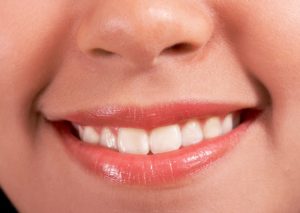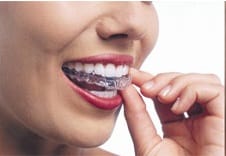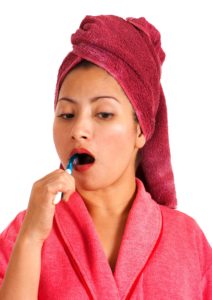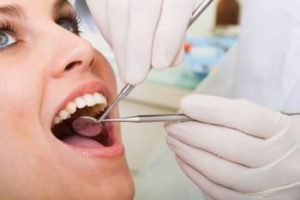 Your pearly whites may not be at the top of your New Year’s resolution list for a healthier you in 2016, but maybe it should be; studies have repeatedly linked your overall health to the health of your mouth. Whether you’re the type of person that hasn’t gone to the dentist for a few years or a regular patient who is ready to take on your oral problems, the New Year is the time to tackle anything you haven’t faced yet: losing weight, improving your fitness, getting your finances in order…even your achy teeth.
Your pearly whites may not be at the top of your New Year’s resolution list for a healthier you in 2016, but maybe it should be; studies have repeatedly linked your overall health to the health of your mouth. Whether you’re the type of person that hasn’t gone to the dentist for a few years or a regular patient who is ready to take on your oral problems, the New Year is the time to tackle anything you haven’t faced yet: losing weight, improving your fitness, getting your finances in order…even your achy teeth.
To that end, we’ve got a few suggestions for your next New Year’s resolution so you can get those neglected teeth under control.
I will drink less soda.
Sodas, even diet sodas, contain sugar which can mingle with bacteria in your mouth to form acid. The acid from this reaction attacks your teeth and can decay outer and interior tooth enamel. Scientific studies have shown a strong connection between soda consumption and tooth decay.
If you do enjoy a regular soft drink, how can you minimize the effects of soda on your teeth? Besides limiting your soda consumption, you can brush your teeth regularly and floss every day. Use a straw when you drink soda, and avoid sipping a soda for long periods of time. Drink water after soda (or instead of soda), and swish in your mouth to reduce the amount of sugar on your teeth.
I will fix my crooked teeth.
 It doesn’t just have to be crooked teeth. If you have an overbite, overcrowded teeth or teeth alignment issues that you didn’t want to face because of that four-letter word ( you know what we’re talking about: BRACES), take heart and face your braces fear in the New Year—without becoming a metal mouth.
It doesn’t just have to be crooked teeth. If you have an overbite, overcrowded teeth or teeth alignment issues that you didn’t want to face because of that four-letter word ( you know what we’re talking about: BRACES), take heart and face your braces fear in the New Year—without becoming a metal mouth.
Yes it is possible. One of the most popular braces products on the market today, Invisible Braces (Invisalign), are not braces; instead Invisalign corrects orthodontic problems with a series of removable clear trays. The pros of Invisalign are clear: they are completely invisible, can still fix common orthodontic problems, and require less orthodontist visits (and maintenance). Invisalign also costs the same as traditional braces (at least at Area Dental Clinic!).
Invisalign does only work best for minor orthodontic corrections, is only available for teens and adults, and does requires discipline because you have to wear the trays 20 hours a day. If you have concerns about any of these areas, contact us. Our dentists can talk you through your options (or you can read about other choices for braces here) and determine what the best option is so you can check ‘fix teeth’ off your resolution list.
I will brush correctly.
 There are numerous ways you could be hurting your mouth by brushing incorrectly—even when you’re trying to improve the health of your teeth by brushing regularly. The first step is to buy the correct brush: dentists recommend buying a soft or medium brush, which is easy on the gums while still getting your teeth clean. When you brush, make sure you follow the American Dental Association’s recommendation of bushing for two minutes each time.
There are numerous ways you could be hurting your mouth by brushing incorrectly—even when you’re trying to improve the health of your teeth by brushing regularly. The first step is to buy the correct brush: dentists recommend buying a soft or medium brush, which is easy on the gums while still getting your teeth clean. When you brush, make sure you follow the American Dental Association’s recommendation of bushing for two minutes each time.
Do you start brushing on the same side every time? If you haven’t thought about it before, it’s time to start taking note. Commonly, people brush harder when they start, so it’s important to spread that effort around your mouth. Consistency is the key to a healthy mouth. Maintain a daily consistent brushing schedule of 2-3 times a day, and not any more than that. Brushing too much can damage your tooth enamel, which can lead to other tooth problems. Also, don’t brush too hard which can have the same negative effect on your teeth.
I will floss my tooth.
Some statistics say that close to 80% of Americans never floss, even though flossing prevents tooth decay and cavities and reduces the chance of gum disease. Flossing is not about the food stuck between your teeth, but about removing plaque which causes tooth decay and cavities. A cavity is really the product of a perfect storm involving bacteria, food, saliva and the resulting acid. Bacteria in your mouth combine with food that sits on your teeth and creates plaque which includes acid. The acid in the plaque eats holes in your tooth (tooth decay) called cavities.
Flossing can give you fresher breath because you are removing particles from between your teeth that can contribute to bad breath. A healthier mouth may also cost less. You may still have to invest in dental care whether you floss or not; there are many contributing factors to dental conditions. However, regular brushing and flossing can give you a healthier mouth, and a healthier mouth is a cheaper mouth when it comes to paying in.
I will overcome my fear of the dentist.
 If you’re one of the millions of Americans afraid of the dentist, there is hope—especially if you face the reason for your fear. If your fear revolves around the cost of dental procedures, ask the dentist for a price list. If you have insurance, know what portion of each cleaning or exam is your responsibility. Request a quote before each appointment so you can budget appropriately. One caution: try not to base your decisions for dental care on your insurance. In some cases, you may need more dental work than your dental benefits cover. Be smart with your money management and dental care, and you’ll be healthier overall and (hopefully) less fearful at your next dentist’s appointment.
If you’re one of the millions of Americans afraid of the dentist, there is hope—especially if you face the reason for your fear. If your fear revolves around the cost of dental procedures, ask the dentist for a price list. If you have insurance, know what portion of each cleaning or exam is your responsibility. Request a quote before each appointment so you can budget appropriately. One caution: try not to base your decisions for dental care on your insurance. In some cases, you may need more dental work than your dental benefits cover. Be smart with your money management and dental care, and you’ll be healthier overall and (hopefully) less fearful at your next dentist’s appointment.
If your fear is emotional, face your fear calmly. Take deep breaths or use another relaxation technique to relax before your dentist appointment. Remind yourself it won’t be as bad as you think. Sometimes our mind can make the thing we fear more painful than it is—such as tooth extractions or root canals. If pain is on your mind, discuss your options for pain treatment and sedation before the appointment.
Bring along someone you trust. Before you visit the dentist, ask if you can have a friend or family member accompany you on your visit. If needed, ask if your acquaintance can accompany you into the treatment room. Bring along music or a book on tape to keep your mind off the dentist visit. Some dentists have a television in the treatment room that can distract you during your preventative dental care or procedure. If none of these tips help, seek out an expert in dental phobias to face your fear.
I will schedule a dentist appointment.
We’re reminded of a friend of a friend who didn’t get dental care for years. When he did step foot in a dentist office, he had numerous cavities and a series of dental issues to address. Years later, he regularly goes to the dentist with no cavities since then. Don’t put off those dental appointments; regular dentist appointments are the key to a healthy mouth.
When you are ready to visit the dentist, choose your dentist carefully. Do your research before you select the dentist for your first visit. Ask around, and search for online reviews. Look for a dentist that has hours that fit your schedule so you can get to those vital dentist appointments, and jump start that New Year’s resolution that gets your teeth healthier, and your smile wider.





